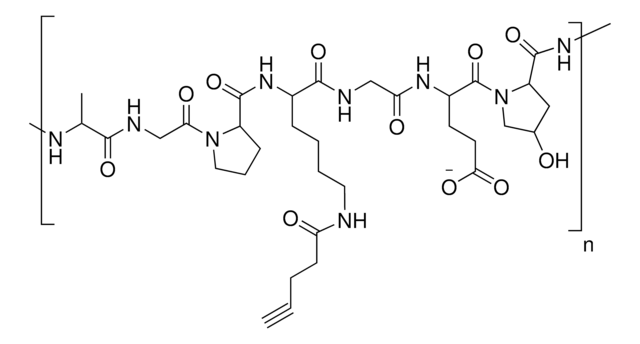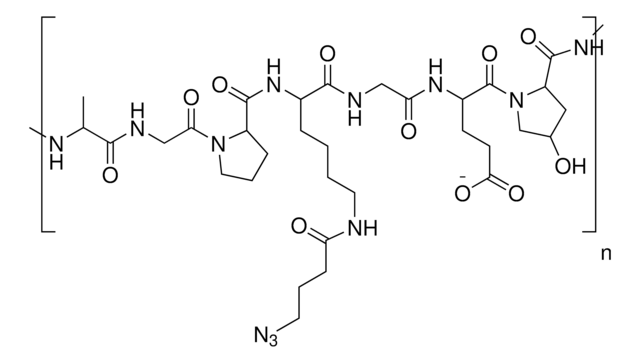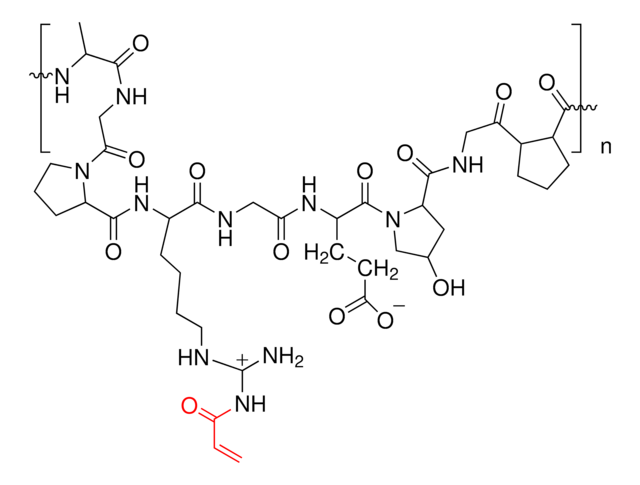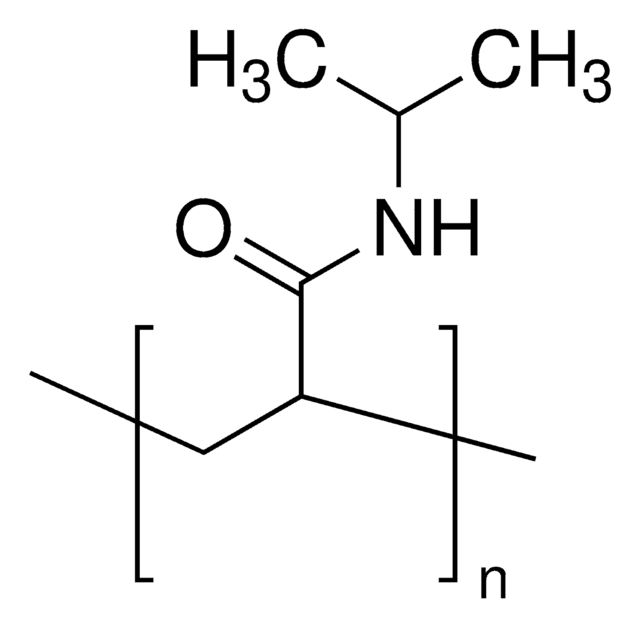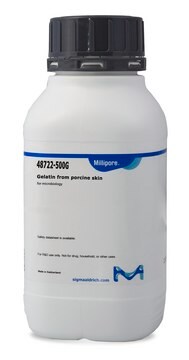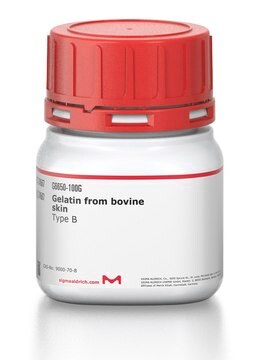904643
Thiol functionalized gelatin
Synonym(s):
Functionalized gelatin, Gelatin thiol, Gelatin-SH• Gel-SH, SH functionalized gelatin, Thiol functionalized gelatin, Thiol gelatin, Thiolated gelatin
About This Item
Recommended Products
description
NMR: Conforms to structure
Thiol content 150-350 μmol/g
Assay
150-350 μmol/g (Free Thiol Concentration by UVVI, UV-vis)
form
powder
color
white to pale yellow
storage temp.
−20°C
Application
Caution
Storage Class Code
11 - Combustible Solids
WGK
WGK 3
Flash Point(F)
Not applicable
Flash Point(C)
Not applicable
Choose from one of the most recent versions:
Certificates of Analysis (COA)
Don't see the Right Version?
If you require a particular version, you can look up a specific certificate by the Lot or Batch number.
Already Own This Product?
Find documentation for the products that you have recently purchased in the Document Library.
Customers Also Viewed
Articles
Professor Shrike Zhang (Harvard Medical School, USA) discusses advances in 3D-bioprinted tissue models for in vitro drug testing, reviews bioink selections, and provides application examples of 3D bioprinting in tissue model biofabrication.
Professor Shrike Zhang (Harvard Medical School, USA) discusses advances in 3D-bioprinted tissue models for in vitro drug testing, reviews bioink selections, and provides application examples of 3D bioprinting in tissue model biofabrication.
Our team of scientists has experience in all areas of research including Life Science, Material Science, Chemical Synthesis, Chromatography, Analytical and many others.
Contact Technical Service

